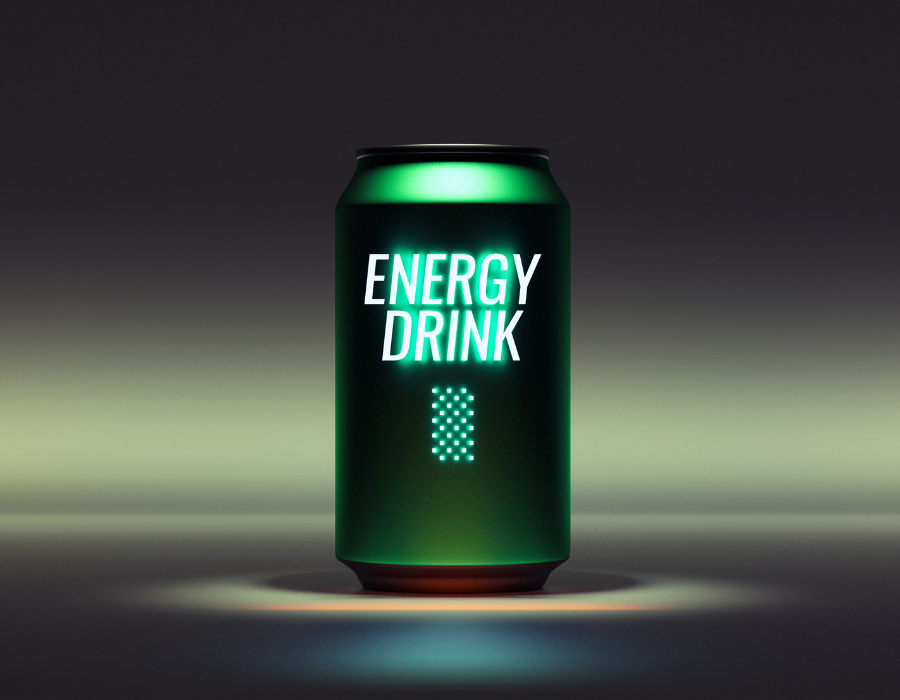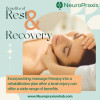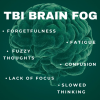Energy drinks are an increasingly popular option among people who need to stay alert or boost their energy levels. Whether you are a student cramming for exams, a night shift worker, an athlete in need of an extra kick, or someone recovering from a brain energy, energy drinks seem like a quick and effective solution. While they may help to increase alertness and performance, there are concerns about their potential impact on brain injury recovery.
Energy drinks are marketed to increase energy levels and alertness and contain a significant amount of caffeine. Many energy drinks contain roughly 200mg of caffeine which is the amount of two cups of coffee but can also have as high as 500mg per can, which is found in 14 cans of cola.
This increase in caffeine can give a temporary boost of energy and focus, but it can also lead to negative effects.
Too much caffeine can irritate your already sensitive brain and may slow recovery, especially during the first few weeks after an injury. Too much caffeine can also lead to changes in mood and sleep which are crucial for brain recovery.
Sleep is an integral part of the healing process, especially when it comes to brain injuries. The brain requires a lot of energy to function efficiently, and it relies heavily on sleep to replenish its resources. During sleep, the brain is given the chance to repair and restore itself, making way for new connections and enhancing its overall functioning. Moreover, sleep plays a vital role in memory consolidation, which can be particularly important for individuals recovering from a brain injury. Without sufficient rest, their ability to learn and remember new information may be significantly compromised.
Caffeine can interfere with sleep as it is a stimulant and has the power to drastically alter brain function by influencing the activity of neurotransmitters, the chemical messengers responsible for transmitting signals between neurons. When caffeine enters the bloodstream, it binds to adenosine receptors, effectively blocking the sleep-inducing molecule from reaching its intended targets. This interruption causes a boost in other neurotransmitters, like dopamine and norepinephrine, which can improve mood, alertness, and concentration, allowing us to tackle important tasks and stay focused throughout the day. However, consuming too much caffeine will force our body to become desensitized to adenosine altogether, making it harder for us to fall asleep at night.
Energy drinks are also known to hype people up, and while that might seem like an excellent solution for brain injury patients, it could bring more harm than good. The high caffeine content and elevated levels of sugar can lead to a quick burst of energy followed by a crash. This crash can negatively impact cognitive performance, leading to a decrease in attention, mental focus, and the ability to process information. It can also contribute to emotional instability and cause overwhelming emotions. Energy drinks could agitate mood disorders such as bipolar, leading to emotional breakdowns. Furthermore, individuals recovering from brain injuries may be more susceptible to the negative side effects of energy drinks, such as anxiety, rapid heart rate, and increased blood pressure. These side effects can trigger or exacerbate existing symptoms of brain injury, such as headaches, dizziness, and difficulty concentrating.
Furthermore, energy drinks could lead to dehydration, which can lower the cognitive function, and it is crucial to understand that brain injury often manifests in cognitive functions, and therefore any effect on them could be detrimental to the patient’s recovery.
The elevated levels of sugar and caffeine in energy drinks can also contribute to other issues in patients recovering from a brain injury. Sugar in energy drinks can lead to an increase in insulin levels, leading to a decrease in blood sugar levels, which can impair cognitive functioning. The high levels of sugar may also lead to weight gain and metabolic issues which can negatively impact recovery. Additionally, consuming too much sugar has been linked to an increase in inflammation in the body, which can exacerbate brain injury symptoms.
When blood sugars are too high, or if one is constantly fluctuating between low blood sugar and high blood sugar, this leads to activation of microglia, the brain’s immune cells. This directly leads to an inflammatory cascade in the brain, or neuroinflammation. Neuroinflammation can cause acute secondary injury after traumatic brain injury and has been linked to chronic neurodegenerative diseases.
When brain inflammation arises, there are immediate and long-term effects. It immediately slows down transmission speed of signals in the brain, leading to the feeling of brain fog and a drop in brain endurance. In the long-term, chronic brain inflammation will lead to sustained microglial activation and eventually neuronal death.
Energy drinks can also impact one’s short-term memory. Researchers found that participants who drank energy drinks were more likely to forget more complex information or be unable to recall items they had mentioned earlier in a conversation or meeting. This occurs due to a decrease in hippocampal activity, a part of the brain responsible for converting short-term memories into long-term memories. Another study on young adults (15-25) found that caffeine’s effects appear to be detrimental to short-term memory, working memory included.
Lastly, energy drinks can be habit-forming, and the potential for addiction is real. Because they contain excessive amounts of caffeine and sugar, you may feel like you cannot function without them. This can lead to negative ramifications in daily life, including physical dependence, anxiety and depression.
There are many ways to boost energy levels without having to turn to an energy drink. One such way is developing a healthy diet, which will help the body maintain its energy levels, and increases the recovery rate. You can learn more about nutrition for brain injury recovery here: www.neuropraxisrehab.com/neuropraxis-nutrition-for-traumatic-brain-injury-recovery/
Additionally, brain injury patients should stay hydrated and adopt an active lifestyle that helps reduce stress levels, which is beneficial in helping the body maintain optimum energy levels. Sleeping well and getting adequate rest also goes a long way in helping the brain recover from injury. As always, speaking with a healthcare provider or registered dietitian can help individuals make informed decisions about their dietary choices and how it may impact their recovery.
NeuroPraxis can help those recovering from traumatic brain injuries by offering different therapies which include occupational, physical, speech and recreational therapy, among others. For more information, visit www.neuropraxisrehab.com or contact NeuroPraxis at 888-266-8921 or at hello@neuropraxisrehab.com.
Resources:
https://www.hsph.harvard.edu/nutritionsource/energy-drinks/
https://www.nature.com/articles/nrneurol.2017.13
https://teamhealthcareclinic.com/brain-inflammation-sugar-surprising-connection/



